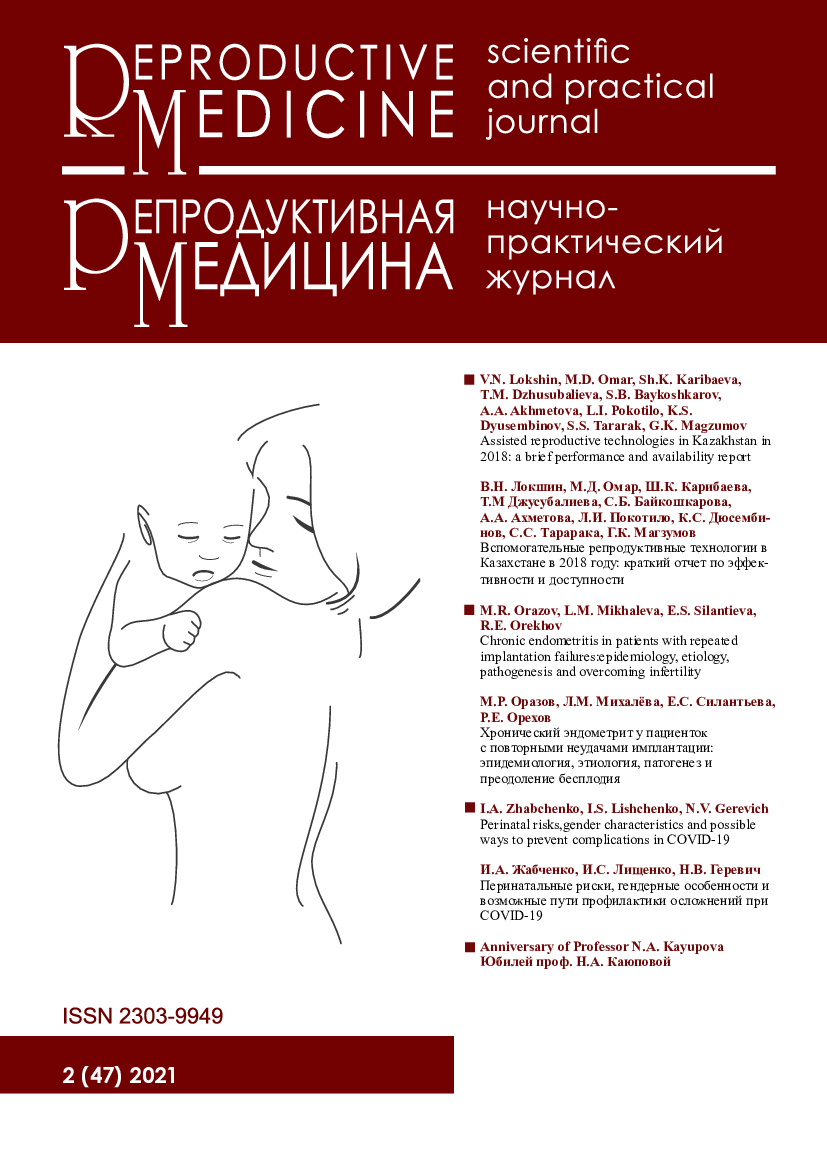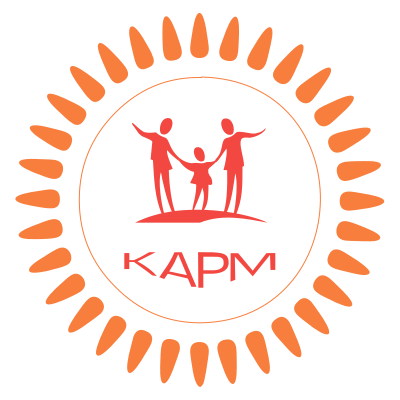Population literacy about reproductive health as measured by the Cardiff fertility knowledge scale (CFKS)
DOI:
https://doi.org/10.37800/RM2021-2-1Keywords:
reproductive health, fertility, Cardiff fertility knowledge scale, fertility awareness, questionnaireAbstract
The health and reproductive potential of a nation depend on the literacy of the population. Sexual and reproductive health is a deeply personal issue, so people may find it difficult to find accurate information on this topic. This article identifies and study the factors that influence knowledge about fertility, which will provide an important basis for effective public education.
The article analyzes the questionnaires of 738 respondents, including 652 women and 86 men. The literacy rate was low compared to Western countries. Men showed a higher awareness of reproductive health. It was also noted, that the respondents who received knowledge from journals, compared to other sources, showed a significant notable difference compared to other sources (television, Internet).
References
Literacy I. of M. (US) C. on H. et al. Health Literacy/ed. Nielsen-Bohlman L., Panzer A.M., Kindig D.A. Washington, D.C.: National Academies Press, 2004.
ERB VOZ | Seksual'noe i reproduktivnoe zdorov'e [Electronic resource]. 2009. URL: https://www.euro.who.int/ru/healthtopics/Life-stages/sexual-and-reproductive-health/sexual-and-reproductive-health (accessed: 20.04.2021).
Lampic C. et al. Fertility awareness, intentions concerning childbearing, and attitudes towards parenthood among female and male academics // Hum. Reprod. Oxford University Press, 2006. Vol. 21, № 2. P. 558–564.
Women and men in Sweden. 2001.
Bretherick K.L. et al. Fertility and aging: Do reproductive-aged Canadian women know what they need to know? // Fertil. Steril. Elsevier Inc., 2010. Vol. 93, № 7. P. 2162–2168.
Lokshin V.N., Omar M.D. ASSISTED REPRODUCTIVE TECHNOLOGIES IN KAZAKHSTAN IN 2017: SUMMARY REPORT ON EFFICIENCY AND AVAILABILITY // Reproduktivnaja medicina. 2020. Vol. 3, № 44. P. 1–5.
Age-related fertility decline // Obstetrics and Gynecology. Obstet Gynecol, 2008. Vol. 112, № 2 PART 1. P. 409–411.
Gossett D.R. et al. What do healthy women know about the consequences of delayed childbearing? // J. Health Commun. Taylor & Francis, 2013. Vol. 18, № SUPPL. 1. P. 118–128.
Williamson L.E.A. et al. Informed Reproductive Decision-Making: The Impact of Providing Fertility Information on Fertility Knowledge and Intentions to Delay Childbearing // J. Obstet. Gynaecol. Canada. Elsevier Inc, 2014. Vol. 36, №5. P. 400–405.
Lampic C. et al. Fertility awareness, intentions concerning childbearing, and attitudes towards parenthood among female and male academics // Hum. Reprod. Oxford University Press, 2006. Vol. 21, № 2. P. 558–564.
Ali S. et al. Knowledge, perceptions and myths regarding infertility among selected adult population in Pakistan: A cross-sectional study // BMC Public Health. BioMed Central, 2011. Vol. 11, № 1. P. 760.
Additional Files
Published
How to Cite
Issue
Section
License
The articles published in this Journal are licensed under the CC BY-NC-ND 4.0 (Creative Commons Attribution – Non-Commercial – No Derivatives 4.0 International) license, which provides for their non-commercial use only. Under this license, users have the right to copy and distribute the material in copyright but are not permitted to modify or use it for commercial purposes. Full details on the licensing are available at https://creativecommons.org/licenses/by-nc-nd/4.0/.




